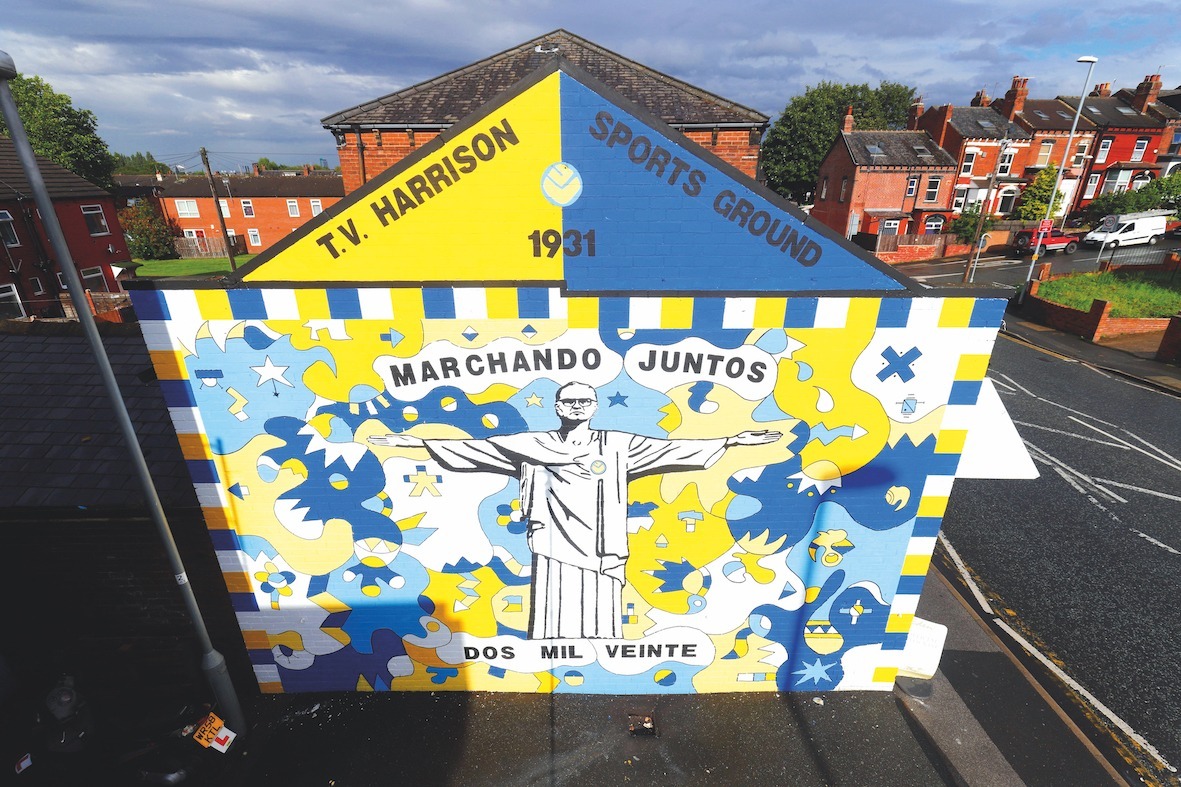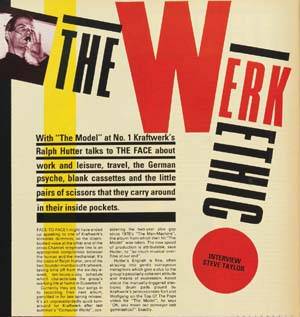
Soon after taking over in 1961, Leeds United manager Don Revie became obsessed with the idea that his football ground was haunted. The club wasn’t reaching its potential, while the players kept on choking when it really mattered. Revie invited a medium to “cleanse” the space of evil spirits.
For a while, it seemed to have worked. By the end of the 1963-64 season, Leeds had been promoted to the First Division (now the Premier League). But, in keeping with previous years, they missed out on the title by goal difference, finishing second. Revie became convinced that a curse had been placed on the club.
One might pass Revie’s actions off as the work of a paranoid mind. Yet they fit squarely within a longstanding tradition of football being elevated to the level of the spiritual. We might even go so far as to say that football is an opium of the people.
A hundred years ago, the pioneering sociologist Emile Durkheim argued that religion emerged through communal living, while the earliest faiths were based not on cosmogonies, but the worship of sacred symbols, or “totems”, that expressed the values of a tribe itself. Tribesmen wore their coats of arms about their body, much like football fans today wear shirts, face paint and badges bearing their club’s logos and colours. And like the single community that constitutes a church, football stadiums and other such venues offer physical locations where abstract values can be embodied through ceremony, ritual and symbolism.
According to Durkheim, early social rituals were an “eminently collective thing”. The devotee confused the effervescent feeling of a social life greater than him or herself with an experience of divinity. The most obvious manifestation of this in football is the tendency among fans to see players as figures to worship – saints, if not gods. After all, Diego Maradona even has a religion founded in his name: Iglesia Maradoniana, or the Church of Maradona.
But if, among devoted fans, football clubs are churches, then what does that make their managers? The recent tumultuous history of Leeds United shows us how the way in which clubs are run – making use of myth and ritual – can impact and transform the psyches of players and fans, for better or for worse.
Don Revie and the cult of money
Don Revie, as we’ve seen, was a deeply superstitious man. The medium was only the beginning. During the course of his leadership from 1961 to 1974, he invited a fortune teller to urinate on the four corners of the pitch, and scrapped the club’s nickname of the “Peacocks” and the owl on its badge out of a fear of feathered creatures. His actions revealed the mindset of an insecure and determined manager, but there was something much deeper at work in his turn to the irrational.
Revie knew that the fortunes of Leeds United were central to the city’s concept of itself. As Anthony Clavane describes in his cultural history of the club, Promised Land: A Northern Love Story, Leeds players aligned themselves with the concerns of upwardly mobile, inwardly anxious northern men, just like Don Revie himself, who could never quite reconcile where he came from with who he wanted to be.
His Leeds came to be reviled as nasty cheaters, intent on winning whatever the method. Don Revie’s had become a blind faith in money and success at all costs, a creed that seemed to infect the club. By the new millennium, Leeds United was engaging in a reckless spending spree which took them to the heights of footballing Europe, matching the city’s swagger as a regenerated financial centre and “Knightsbridge of the North”. But the owners and players had banked on the club attaining regular Champions League football to fund their lavish new lifestyle. They didn’t.
The club imploded spectacularly. They sold their best players, got relegated, went into administration, got relegated again, and spent 15 years in the wilderness, a kind of Ozymandias. The biggest one-city club in Europe lay wrecked in the desert of the third tier of English football, its cracked visage standing as a warning of the hubris of living beyond your means.
I asked Clavane about the club’s history and how it feeds into the idea of sport-as-religion. He described Leeds, both city and club, as perennial underachievers longing for salvation. By 2018, he told me, “Leeds needed an outsider to come in and turn [its] world – the club’s and city’s – upside down.” And that is exactly what happened: call and he will answer.
Believing in the team
Walk the streets of Leeds today and you will see murals of a man who has eschewed the trappings of his wealth, who turned down residence in a luxury hotel in favour of living in a one-bedroom flat, who appeared at exclusive black-tie dinners wearing a tracksuit, and who once bought a car as a prize for the staff Christmas raffle. You may have heard him called many names: El Loco, The Professor, The Bucket Man. To Leeds United fans, Marcelo Bielsa is simply known as God.
An Argentinian, Bielsa transformed the club and brought a new source of pride to the city. He did so, in part, by applying a new set of beliefs to Leeds United. Where the religion of the market would dictate that players should have been sold and “better” products bought, Bielsa kept nearly all of those from the season prior to his arrival. While past managers had put their trust in money, El Loco (“The Crazy One”) appeared to have faith in his players, in their capacity not just to make mistakes but to make amends, to learn, to improve.
On the first game of the 2018-19 season, Leeds emerged sui generis to blow away Stoke City – favourites to be promoted to the Premier League – with a brand of free-flowing, high-pressing, life-affirming football that would become the hallmark of Bielsa’s Leeds. In 2020, when they marched back to the Premier League, players long seen as write-offs quickly corrected their critics. Patrick Bamford became the second highest scoring Englishman behind Harry Kane, while Kalvin Phillips went from a squad player to playing every game of England’s march to the Euro 2020 final, hailed by former England manager Fabio Capello as the “best modern midfielder” in the world.
Like Don Revie before him, Bielsa made use of those same tools of myth, ritual and religion. Like Revie, he had his eccentricities: the blue line he had painted between his flat and the training ground so he could focus his mind on football rather than navigation; the insane levels of preparation, which included the 19 hours he spent analysing footage of a single youth team prospect, as well as managing the under-12s during the off season and producing an eight-page dossier on a third-choice goalkeeper.
But the principles behind Bielsa’s managerial style came from a very particular place. A devout Catholic, while manager of Athletic Bilbao in Spain he took a trip to the St Clare Convent in Guernica. There, he prayed with the “Poor Clares”, an austere and ascetic order of nuns within the Roman Catholic Church that are devoted to prayer, penance, contemplation and manual work. He was so struck by his brief time at the convent that in a subsequent game he placed a sign emblazoned with “Poor Clares” near the manager’s dugout, before a stadium official had it removed.
In fact, “Bielsaball”, the name fans gave the manager’s underlying style and approach, seemed very much like a secularised version of liberation theology. This Catholic movement, founded in Latin America in the 1960s, saw the church as duty-bound to help the poor and bring about the potential of all through liberation from oppression. The dignity of every human, the importance of family, community and participation, of rights and responsibilities – these values have found modern-day expression in the spirit of team sports and in Leeds United.
Goodbye to a secular saint
But does this impulse have to be thought of as religious? We could also view Bielsa’s attitude as rooted in a humanistic belief in people as ends in and of themselves. It is not a coincidence that the people of Leeds share something of the values of two clubs that are similarly close to Bielsa’s heart: Athletic Bilbao and Newell’s Old Boys, whom he managed early on in his career. Like Leeds, their core support base hails from post-industrial towns where passion and hard work, and the will to self-improvement, are as central to life in the workplace as they are in the football stands.
As clubs around the world move toward private equity ownership and new markets, it is the identification fans have with their clubs – essentially human passions expressed through ritual and the possibility of competition – that is most at risk. On the eve of the planned departure of the Big Six clubs from the Premier League to the Super League in April 2021 – a move which placed the profit motive at the heart of the sport – Bielsa grew reflective. “One of the reasons football is the most popular sport in the world is because the weak can beat the powerful,” he said. And he turned out to be right. Backlash from supposedly “disempowered” fans led the plans for the Super League to be shelved.
It took an outsider, an eccentric, a man with the cult following of a secular saint, to unleash the potential of Leeds United and reveal the talent that was there all along. Bielsa is no longer manager of Leeds United. But we can still learn from El Loco and his “mad belief” that football’s value lies not in rapacious capitalism or winning-at-all-costs, but in working-class communities, the bonds between human beings, and the faith placed in their inherent capacity for improvement. It may not be such a crazy idea after all.

